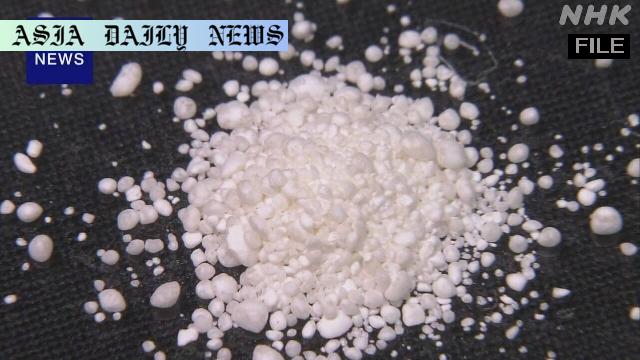PFAS pollution embattled Italian court sentences 11 officials for groundwater contamination, with prison terms ranging from 2 to 17 years.
Italian court sentenced 11 executives guilty of PFAS pollution.
Prison terms range between 2 years, 8 months to 17 years, 6 months.
Pollution occurred due to groundwater contamination from a chemical plant.
Three Japanese executives from Mitsubishi Corporation were among the convicted.

Groundbreaking Decision on PFAS Pollution in Italy
An Italian court in Vicenza has made a significant contribution to environmental accountability by sentencing 11 former executives to prison for their involvement in the contamination of groundwater caused by PFAS chemicals. Reaching a milestone in the fight against environmental pollution, this landmark case has sent a strong message to industries that engage in harmful practices.
The convicted executives, formerly associated with a chemical company that operated under Mitsubishi Corporation, received sentences ranging from 2 years and 8 months to as long as 17 years and 6 months. Some of the Japanese executives received severe penalties, with two sentenced to 16 years and another to 11 years in prison. This verdict underscores the Italian judicial system’s determination to hold corporate leaders responsible for profoundly damaging the environment.
The Catastrophic Impact of PFAS Pollution
PFAS, or per- and polyfluoroalkyl substances, are a group of organic fluorine compounds often referred to as “forever chemicals” due to their extremely low degradation rate. These compounds have been linked to several health concerns, including hormonal disruptions, immune deficiencies, and even cancer. Over decades, a chemical plant in northern Italy, operating since the 1960s until its bankruptcy in 2018, was found to have significantly polluted groundwater resources, causing long-term environmental and public health ramifications.
The plant produced PFAS and other products while turning a blind eye to the environmental repercussions of its activities. This negligence was attributed to corporate decisions taken by the executives who prioritized profit over ecological welfare. The court’s ruling sets a precedent for addressing industrial responsibility in similar cases.
An Ongoing Conversation with Mitsubishi Corporation
As one of the parents of the defunct chemical company, Mitsubishi Corporation’s role has come under scrutiny. While the company has refrained from making detailed comments due to ongoing legal proceedings, it has stated its intention to handle the matter within the judicial process. This has not quelled rising concerns over multinational corporations’ accountability in environmental crises and their obligation to uphold strict environmental ethics globally.
This case amplifies the call for better regulations and monitoring of PFAS production and usage. Governments and international organizations worldwide are now vigilant about preventing similar instances of environmental degradation.
Legal and Global Consequences
The court’s decision has far-reaching consequences not only in Italy but across the global stage. By penalizing top-tier corporate executives, the judiciary highlights the shared responsibility of individuals in positions of power. Lessons drawn from this case may influence international legislative measures that address corporate environmental violations.
It also raises awareness about the environmental repercussions of human activities, underscoring the importance of early and proactive measures to prevent ecological disasters. Italy’s approach could inspire other nations to scrutinize industries with long histories of polluting practices and could ignite debates on how best to legislate against PFAS production and disposal worldwide.
Commitment to Environmental Accountability
Ultimately, the Vicenza court’s ruling illustrates the changing attitude of global justice systems toward corporate misdeeds. Authorities are no longer hesitant to assign culpability where it is due, reflecting a growing trend towards ecological responsibility and reparative justice. The outcome of this trial is bound to impact industries at large, urging stricter compliance with environmental laws and highlighting the individual accountability of executives within environmentally negligent corporations.
Commentary
Importance of Corporate Responsibility
In a world grappling with environmental challenges, cases like this Italian PFAS pollution trial remind us of the enormous responsibility corporations bear. The conviction of 11 executives is a wake-up call for industries operating in disregard of environmental repercussions. Beyond just financial considerations, corporations have an obligation to prioritize sustainable development, ensuring their practices do not harm ecosystems or public health. This court ruling holds decision-makers accountable, paving the way for stricter global oversight of industrial operations.
The Role of Transparency and Oversight
Mitsubishi Corporation’s involvement in this case shines a spotlight on the role of multinational conglomerates in their subsidiaries’ operations. Commitment to transparency and rigorous oversight is critical, as these organizations hold significant influence over smaller companies. While Mitsubishi claims to respect the judicial proceedings, it is also essential for such corporations to acknowledge environmental harm caused by their actions, actively working towards remediation.
Influence on Global Environmental Policies
This landmark decision could have widespread implications on global environmental policies. Judicial systems in other nations may look to follow Italy’s steps in severely penalizing companies that disregard ecological welfare. Attention may also shift toward banning or strictly regulating the production and use of harmful chemicals like PFAS. Governments and industrial leaders will need to collectively address the long-lasting damage caused by materials like these, emphasizing renewable and less harmful alternatives.
Public Awareness and Advocacy
Finally, this case demonstrates the critical role of public awareness and advocacy in holding industries accountable. Persistent environmental degradation is often swept under the rug until it reaches catastrophic proportions. This trial sends a strong message to the public, urging individuals and communities to participate actively in ensuring industrial operations align with environmental goals. Grassroots movements and NGO efforts remain invaluable in advocating for stringent monitoring of harmful industrial activities.


